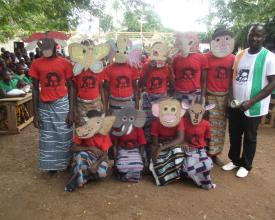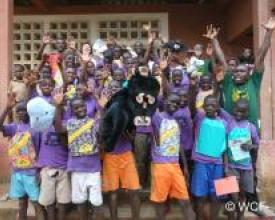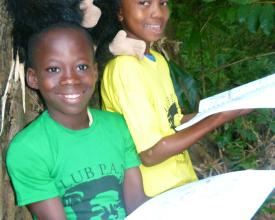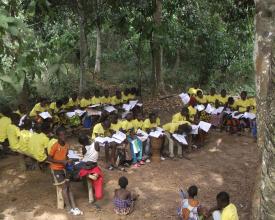Club P.A.N.-La educación medioambiental promueve la conservación de los chimpancés
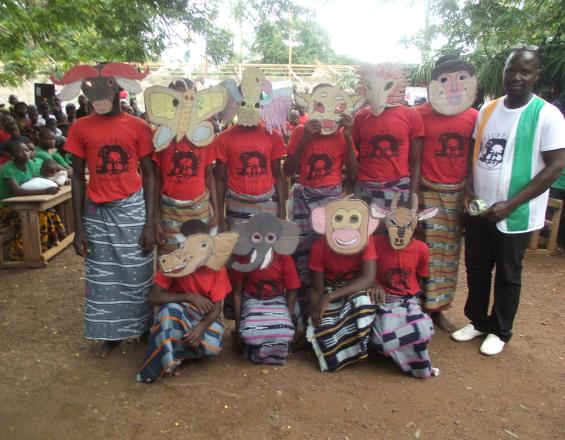
La educación es una prioridad a largo plazo para la conservación de los chimpancés y otros animales salvajes. En 2007, el grupo de conservación MPI y la WCF crearon el Club P.A.N para las escuelas de África Occidental. El objetivo del proyecto es disuadir a los niños que viven cerca de hábitats de chimpancés salvajes de consumir carne de animales silvestres y permitirles ser proactivos en la conservación de la biodiversidad. El Club P.A.N. trabaja en escuelas de los alrededores del Parque Nacional de Taï, en Costa de Marfil, y en escuelas de Guinea de los alrededores del recién aprobado Parque Nacional de Moyen-Bafing.
Contexto
Défis à relever
La Lista Roja de Especies Amenazadas de la UICN clasifica a los chimpancés como especie en peligro. Han desaparecido en tres países de África Occidental y las principales amenazas son la pérdida de hábitat y la caza para obtener carne de animales silvestres. Los bosques tropicales estaban muy extendidos, pero siguen disminuyendo. Tenemos experiencia de primera mano trabajando en el PN de Taï, y nos preocupaba el nivel de caza y degradación ambiental. Esto nos motivó a crear el Club P.A.N.
Ubicación
Procesar
Resumen del proceso
Bloques de construcción
Contratación de socios locales para el apoyo y la ejecución
Factores facilitadores
Lección aprendida
Capacitar a los profesores locales
Factores facilitadores
Lección aprendida
Planes de clase y evaluación sobre ecosistemas y biodiversidad
Factores facilitadores
Lección aprendida
Implicar también a los adultos a través de los "Días de los padres
Factores facilitadores
Lección aprendida
Los microproyectos escolares inculcan responsabilidad y orgullo
Factores facilitadores
Lección aprendida
Impactos
Los resultados de la evaluación de los últimos cursos escolares revelaron que la participación en el Club P.A.N. aumentó significativamente los conocimientos medioambientales e influyó positivamente en las actitudes hacia la naturaleza (Borchers et al. 2013). En las escuelas del Club P.A.N. se establecieron con éxito microproyectos para enseñar a los niños técnicas de cría de animales domésticos (peces, caracoles, cabras, pollos) como fuentes de proteínas alternativas a la caza de carne de animales silvestres. Sólo si somos capaces de presentar y enseñar alternativas a la caza, los niños encontrarán una forma de vivir en armonía con la naturaleza en el futuro.
Beneficiarios
Escolares, profesores y principios y padres y aldeanos.
